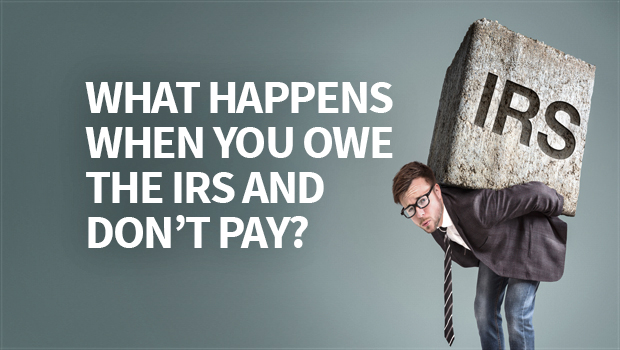For the most part, we can’t get away with not paying our taxes. So what happens when you don’t pay your taxes when they are due? Does an IRS agent come to your bank and take money from your bank account? Or do you get a letter in the mail a month later saying the IRS has a lien on your property?
Both situations are possible, at least to some degree. However, a lot can happen from the moment a tax obligation comes into existence and the IRS takes action against you.
The Beginning of the Tax Collection Process
A tax debt starts when you file your taxes and do not have enough money to pay your tax debt in full. When this happens, the IRS will send you a tax bill. This tax bill will arrive as a letter and indicate the amount due, including how much is owed in penalties and interest.
What Happens After Your First Tax Notice
Assuming you can’t quickly pay off your tax debt, the interest and penalties will continue to accrue. If you need more time to pay your taxes, you have several options. These include creating a payment plan with the IRS, try and settle your debt for less than the amount owed or delaying the tax collection.
IRS Payment Plans
There are two main types of payment plans: the Short-term Payment Plan and the Long-term Payment Plan. Short-term Payment Plans apply if you intend to pay your entire tax debt in 120 days or less and owe less than $100,000 in combined taxes, penalties and interest (if applying for a payment plan online).
You will use a Long-term Payment Plan if you need more than 120 days to pay off your tax debt and owe less than $50,000 in combined taxes, penalties and interest (if applying for a payment plan online).
Settling Your Debt for Less
In some situations, the IRS may agree to accept partial payment of taxes, subject to some caveats, of course. There are two ways to do this.
First, there’s the offer in compromise (OIC). This allows you to resolve your tax debt for less than the full amount owed. Often, the IRS will only approve your OIC application when you truly have no reasonable likelihood of paying off your entire tax debt.
Second, there’s the partial payment installment agreement (PPIA). This is similar to an OIC in that you get to pay less than what you owe. However, the IRS reserves the right to review your situation every two years. If the IRS believes your financial situation has improved, they can ask that you pay more each month.
Tax Collection Delay
If you can demonstrate a financial hardship, the IRS may agree to temporarily delay the collection of your tax debt. The IRS will then mark your account as being not collectible. This does not make your tax obligation disappear. It also does not stop the buildup of any penalties or interest.
Why ask for a tax collection delay? It can stop the IRS from issuing a levy, which allows the IRS to take your property, such as paychecks, financial accounts and government benefits.
In Summary
The above is just a very general overview of a taxpayer’s options when they owe the IRS back taxes. If you find yourself in this situation, you’re strongly advised to seek the advice of a tax attorney, CPA or other tax professional to discuss all of your options, as well as provide detailed steps on what you need to do.
Do Not Ignore Your Tax Problems!
Tax Law is Our Specialty. Contact us to Get Your Life Back to Normal.

